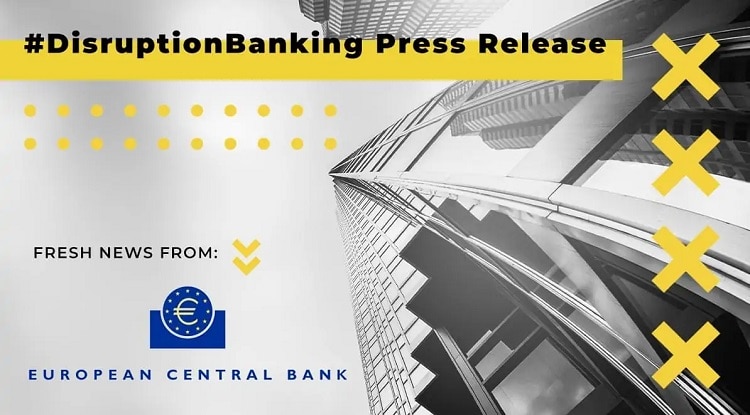In July 2015 the first FinTech Meetup took place in Budapest. Today the group has grown to almost 3,000 members. DisruptionBanking invites you to take a look at the man who is making sure that Hungary is still considered to be a Fintech Nation. And how his current priority to bring Sprints as a Service to the global Banking and Fintech communities is bearing fruits.
One of the leaders behind the Fintech Meetup initiative was András Berczeli, Founder and Managing Director of Sprintform. A company focused on quality and bringing the best in class methodologies to financial institutions and startups from across the world.
Early on in his career, András joined OTP Bank, the largest bank in Central Europe. This was just after the first Meetup took place. In his initial role he was responsible for digital channels, data strategy, and online sales within eight subsidiaries of the group. Later he moved to eBIZ, which had been accelerated and acquired by OTP Bank and launched in March 2017. András was then appointed Head of Finance and Strategy at eBIZ.
Interestingly, whilst working with his then boss Tamás Josvai, the CEO of Microsoft, Satya Nadella visited Budapest:
"When you change the way you see the world – you change the world you see."@satyanadella https://t.co/kQ76L3vTWg pic.twitter.com/6fV9IzioMi
— Microsoft Ireland (@Microsoftirl) May 20, 2017
Establishing a Fintech focused services provider in Hungary
Today eBIZ is an established brand within OTP Bank’s suite of products. It offers QuickBooks type solutions as well as online banking for micro and small businesses in Hungary. András was involved with developing the service offerings of eBIZ from late 2016.
“Until eBIZ I was working on digitalization projects,” András shared. “With eBIZ I switched to the Fintech space.” Instead of just general innovation within a bank, it was developing products that really piqued András’s interest. He has never looked back.
Another thing that András found very interesting were agile and scrum methodologies. He became a scrum master having started embracing the methodology seven years ago. Since then András has even had a mastercalss with Jeff Sutherland, one of the creators of Scrum.
“Working with lean startup methodology was something I was very comfortable with,” András, who has a background in finance, explained. “With the technology itself I needed time to learn everything.”
One of the first milestones to overcome at eBIZ, András continued, was taking a ‘proof of concept’ to ‘go live’ within six months. The applications the team were building were integrated with OTP Bank, and scrum was implemented for all the product development.
Using Data to Better Understand Customer Needs
“At the beginning the whole organization was so flat that next to my leadership position responsible for finances and strategy, I was the Product Owner of the Data Warehouse too,” András shared. “I was responsible for deciding on online marketing agencies. It meant that I had to work with all parts of the application. Added to the experience of corporate innovation from within the larger bank itself, it was a great experience which gave me a lot.”
In his role as product owner of the data warehouse, András was the one who defined the data model for eBIZ. It opened his eyes to how data can help banks to strengthen their customer offering, and ultimately customer acquisition. András also understood how important data is in relation to compliance. It’s a great place to analyze what customers need. But it’s also a great place to involve risk management in the discussion, András explained.
Whilst working at eBIZ, András worked with both a strong and engaged team as well as with a healthy budget. When he left the bank to start Sprintform. He had to face some new challenges.
The Fintech Startup ecosystem in Hungary
András left eBIZ to setup Sprintform in early 2019, and the Fintech Meetups took a backseat (temporarily). Which probably accounts for why, when DisruptionBanking wrote about the Hungarian Fintech ecosystem in 2019, we omitted the already bulging Fintech Meetup group András had helped create. Instead the story focussed on what János Pereczes, managing director of MKB Fintechlab, was doing at the Hungarian Bank, MKB.
Perhaps not the first place to be considered as a hotspot for #fintech activity, Hungary and its capital, Budapest, are making headway in developing products and services for the country’s fledgling financial sector and beyond. A blast from the past: https://t.co/zHqLfmx95r pic.twitter.com/h5AhQwMalK
— Digital Startup (@digitalstartup5) September 14, 2023
János was a co-founder of the original Fintech Meetup group with András. And they still maintain a good relationship. However, it was clear that due to the sheer size of Hungary’s largest bank – OTP Bank – there was little or no competition in terms of scale. Competition that could have released budgets on a par with the budget needed to roll-out a startup like eBIZ. Several other banks tried to put together accelerators, hackathons and a myriad of other incentives. However, none of them have had the resources to do this as well as OTP Bank.
This had a profound effect on András, who hoped that budgets for innovation would be higher in the local market. Especially with the runaway success of companies like Revolut, which had recently entered Hungary.
The reality of growing a Fintech focused services provider in Hungary
Founding and growing a Fintech focused services provider is not an easy thing. Very few people succeed. And, with András, the same challenges were present. Upon noticing that Sprintform would take more elbow grease than was initially imagined, András lost his other co-founders. Rather than focusing only on banking and Fintech clients just in Hungary and Central Eastern Europe, András had to spread the net much wider.
“I was relentlessly working on building up our international coverage,” András explained. “I wanted the company to be international.” He even went to Shanghai when he was offered an opportunity to speak at CES Asia in 2019.
By the end of 2019 the new company found its place in the market. Sprintform even engaged an aviation company as a client. Until March 2020.
When COVID broke out, András was on his delayed honeymoon in Miami. He woke up one morning and was told by their biggest client that the contract would have to go on hold. All flights were grounded. András managed to get home just in time though.
As with everything, András remained positive. And his small team also remained loyal to him during the first lockdowns. Initially they focused on helping clients with projects using methodologies like scrum and agile. Later the engineering team started to take shape too.
Sprints as a Service with Sprintform
“Now we focus on data and product type projects, and development, which is where the bulk of our experience is,” András explained. Then András moved to the concept of ‘Sprint’. How when using two or three Sprints for smaller companies or products, the team were able to get to product discovery quickly.
As Sprint is at the heart of scrum and agile methodologies, it was a natural place for András to focus. Especially after his initial success working with partners at eBIZ.
“The name Sprintform comes from the fact that we are trying to offer Sprints as a Service,” András highlighted. “We are trying to transform companies with Sprints. Today banks and Fintechs have to constantly be at their best. With Sprintform they are able to deliver Sprints on a weekly basis, not just bi-weekly. This helps our clients stay on top of their challenges. It doesn’t matter if they are a startup or an enterprise business.”
Of course, Sprintform isn’t the only company out there which can help financial institutions with Sprints. Companies like 11:FS amongst others also offer this service. Which puts into perspective the size of the task that stands before András and his team.
In 2019 companies like 11:FS were already a dominant force at events such as Money 20/20 or SIBOS. At the time András was still watching banks embrace agile methodology. He had long understood the concept of ‘lean startup’. But many of his counterparts on the local market were still getting to grips with it.
Ever wondered what Lean Startup Model means ? https://t.co/wtDxJblPaO . pic.twitter.com/juTCzDqTAz
— Link (@link_innovate) March 13, 2016
Agile needs good Client Vendor Partnerships
Agile is clearly important. Banks in their droves embraced the methodology in the late 2010s. But what András wasn’t seeing on the market was a way to ship products better, cost-effectively and more efficiently. In partnership.
“It felt like a good moment for us to offer Sprints as a Service,” András added. “Everyone was switching to agile, which was great. But no one knew how to ensure a good type of client vendor partnership.” This was partially due to the historic reliance on waterfall, András elaborated. With Sprintform relying on agile and scrum methodologies from day 1, the setup at the firm was more suited to what clients needed.
The other concern that András addressed was how implementation of agile methodology by some of the leading consultancy firms had left a sour taste in the mouths of many top executives in banking. Not related to agile itself. They were focusing on the process and less on the principles and the mindset.
This challenge led András to embrace partnerships with Banking as a Service providers like Railsr or Mambu, whose customers needed help with product development once they get to the stage of needing a BaaS provider. This allowed Sprintform to start working with companies in Scandinavia, the UK, and other Western European countries like the Netherlands. Next to that, they started to open up to other industries to diversify, even helping some U.S. startup founders with projects focused on IoT or deep tech.
“Most recently we started work on a Caribbean banks’ mobile banking application,” András explained. “Today almost 70% of our turnover is coming from projects from the rest of the world. Only 30% of our turnover comes from the local Central Eastern European markets.”
The Focus at Sprintform is on Quality
Sprintform is very visible in Hungary today. András himself was selected in Forbes 30 under 30 in 2017 and won the CEO of the Year Award from Behaviour Magazine in 2023.
Over the years this success has helped in fine-tuning the direction of Sprintform. A focus on international clients, but more importantly, a focus on quality.
“From the scalability point of view we have placed the emphasis on quality,” András shared. “We are unlikely to scale up to 2,000 people, we are trying to scale whilst maintaining stable growth. Our progress and achievements couldn’t be reached without our team which I am really proud of. During those years I could really count on someone: Mercedesz Sztanojev, who became our CTO throughout her career at Sprintform. She was already supporting us for more than three years prior to setting our foundations together.”
Apart from helping companies with product development, András is also keen on helping financial institutions work out a proper strategy for data. This approach means Sprintform operates like a consultancy firm. Something that needs talented team members who can add value to clients.
On the back of this, a new area for the team is business process optimization. This may seem to suit enterprise type clients more, but the team at Sprintform are also very comfortable working with startups. András doesn’t want this to change.
Emerging Technologies like Generative AI
Technology is all about change. As we have seen with the emergence and popularization of everything Generative AI.
András sees the rise of AI as something that will help the customer experience. He shared how people were not engaging as much with chat-based systems in the past. They were missing the visual part of the experience. Since the emergence of ChatGPT this has changed.
“One of the takeaways [about Generative AI] is not that it will change the world, which it will,” András explained. “But the key takeaway is the fact that people who were previously used to visual types of customer experiences are now embracing chat-based customer experiences. This could be very important for enterprises and startups to consider.”
András also added how he believes that of all the big tech firms out there, only Apple are truly focusing on the end user. Exemplified by the recent release of Apple’s Vision Pro mixed reality headset.
Apple is in a special place for András. “They [Apple] are trying to open up new markets. They are in the blue ocean strategy. Therefore we are eager to research how you can offer better customer experiences using this new technology.”
András also spoke about Low Code No Code. Sprintform are currently helping customers optimize processes using Low Code solutions.
“Nowadays there is much more demand for optimizing costs than there is for just improving your revenue,” András shared. “It’s important to optimise the processes around you. Even if you aren’t an enterprise.”
Nordic Fintech Week
If you want to find out more about András and Sprintform, he will be speaking at the upcoming Nordic Fintech Week in Copenhagen.
At 10.20 on the 28th of September you can hear his thoughts about “Crafting Desire, The Art and Science of Developing and Marketing Irresistible Products”. Find out more: Nordic Fintech Week (nfweek.com)
Author: Andy Samu
See Also:
Fintech Nation: Hungary • Disruption Banking – Fintech Platform















